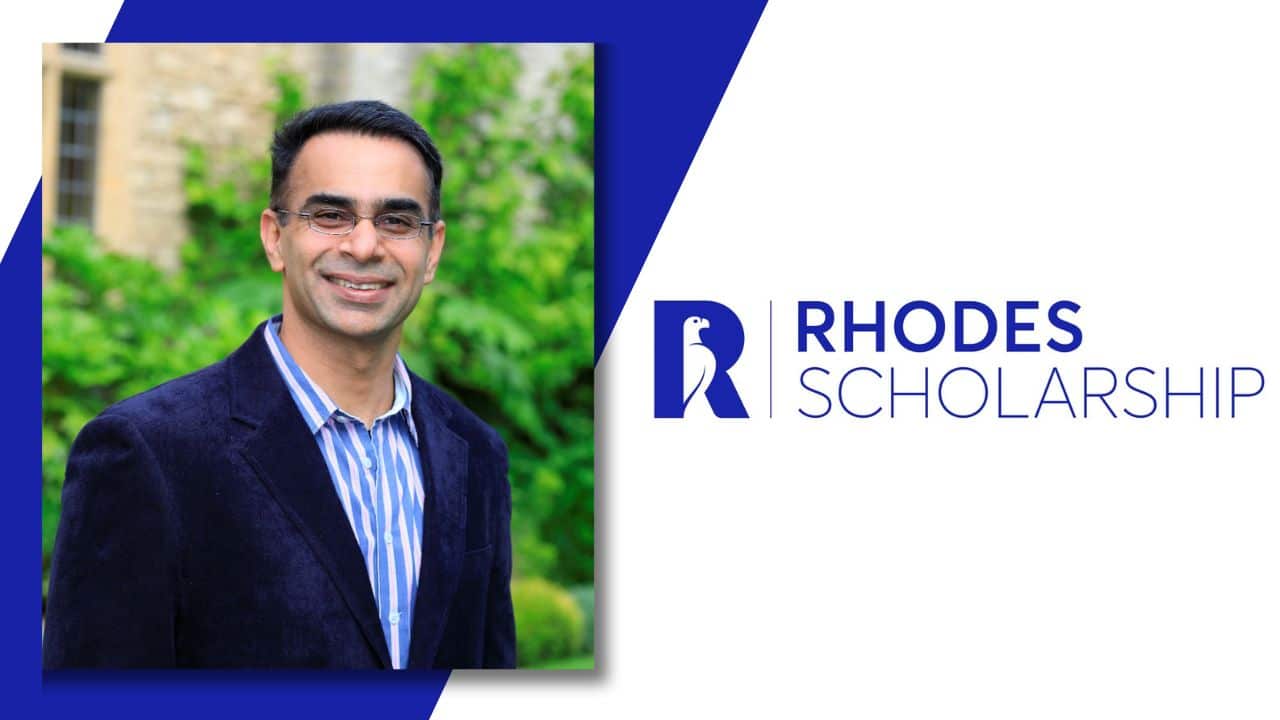We interviewed the esteemed Judge of the Islamabad High Court, Babar Sattar on his multifaceted career, which includes roles as an advocate in the Supreme Court of Pakistan and a distinguished law professor.
Sattar received the prestigious Rhodes Scholarship to study at the University of Oxford in 1999 and also received his Master of Laws (LLM) degree from Harvard Law School. He currently serves as the National Secretary for the Rhodes Scholarships in Pakistan and oversees the Scholarship’s selection process. In this role, Sattar imparts his wisdom to pave the way for a new generation of Scholars and leaders in the country.
In this exclusive interview, we delve into his insights, experiences, and aspirations to uncover the profound impact he envisions for Rhodes Scholars and Pakistan’s future.
Q1: Could you share some insights into the criteria and qualities you look for in potential candidates?
A: The Rhodes Scholarship has 61 constituencies across five continents, including a Global Constituency, which means that students from anywhere in the world can apply. Our application process ensures a dynamic and inclusive selection of Scholars. Academic brilliance is, of course, essential, but equally crucial is a Scholar’s character, which must resonate with the Rhodes Trust’s ethos: leadership that inspires, service for a better world, and a belief in performance.
The selection process is demanding but, more importantly, it is a process that facilitates self-reflection. Many candidates, especially those who make it to the final interview, tell us that our rigorous selection process is a profoundly positive experience that helps prepare them to go on to a Rhodes Scholarship or avail other opportunities worldwide.
Q2: Can you share some memorable experiences from your time as a scholar? And how has your personal experience influenced your approach to guiding and selecting scholarship recipients in Pakistan?
A: I was not awarded the scholarship the first year that I applied. I learnt from the selection process and came back the next year with a better resume and more resolve. That I got the Rhodes Scholarship taught me that the programme recognizes and rewards hard work and perseverance. Getting to the Rhodes House in 1999 and meeting a cohort of extraordinary individuals from around the world was won the Rhodes Scholarship my year was humbling. But the realization that I was a part of this accomplished group was simultaneously confidence-inspiring. Becoming a Rhodes Scholar led to many lifelong connections and impactful moments. Even now, there are regular alumni meet-ups that become not just gatherings, but forums for discourse and an opportunity to develop genuine friendships. My journey has fueled my commitment to mentor Scholars who contribute to a global community, echoing the true spirit of the Rhodes Trust.
Q3: What trends or changes have you observed in the aspirations and career trajectories of Rhodes Scholarship applicants over the years, and how has the selection process adapted to these changes?
A: There is no prototypical Rhodes Scholar. Career aspirations are always evolving. We have civil servants, academics, scientists, lawyers and doctors – to name a few – who form part of our Rhodes family. Lately, we have been seeing Rhodes Scholar alumni pursuing purpose-driven careers, seeking out jobs in think-tanks, charities and not-for-profit organisations, as well as careers in STEM. Witnessing this, especially among Pakistani applicants, is inspiring.
Pakistani alumni are among the Scholars seeking out purpose-driven careers. One notable alumni that comes to mind is Tanyah Hameed, who has made impactful contributions to public policy in areas such as children’s social care, mental health and employment, COVID-19 adaptation, and refugee support. Rafiullah Kakar, who hails from Balochistan, is another; he works for the Planning Commission of Pakistan and is making his mark contributing to public policy debate around issues of inclusion. This is what the Rhodes Scholarship is all about: empowering future leaders in fields that are catalysts for positive change.
Q4: In your role, you are involved in shaping the future leaders and Scholars of Pakistan through the Rhodes Scholarship. What impact do you hope these Scholars will have on the country and beyond?
A: The impact of Rhodes Scholars is not measured in degrees or titles but in the tangible changes Scholars and alumni bring to their communities, countries, and the wider world. For example, Khansa Maria is a Pakistani Rhodes Scholar, who is deeply passionate about advocating for the rights of people with disabilities and creating accessible, inclusive communities.
This year marked 75 years of the Rhodes Scholarship in Pakistan. Over the years, Pakistani Rhodes Scholars have created an impactful legacy; alumni include, a former Acting President and Chairman Senate, a University Vice-Chancellor, a judge, tenured professors and authors, and leaders across sectors including civil service, education, business, science, medicine, the arts, and politics.
Q5: Can you share some success stories of Rhodes Scholars from Pakistan, and how do these stories reflect the goals and values of the Rhodes Trust Scholarship program?
A: Rhodes Scholars are known to help create diverse communities and brighter future for all. I believe that the alumni from Pakistan truly embrace this spirit. Waseem Sajjad, Acting President and longest serving Chairman of the Senate, was also the longest serving National Secretary for Rhodes Scholarship in Pakistan. Dr. Ali Cheema is Vice-Chancellor of one the most prominent Pakistani universities and generously devotes his time for the selection proves. Osama Siddique and Aqil Shah are well regarded academics and authors. Scholars like Rafiullah Kakar, Khansa Mariah and Tanyah Hameed are among those who tirelessly champion equity.
Most recently, Asmer Safi and Iman Iftikhar were selected as Rhodes Scholars from Pakistan for the Class of 2024. Asmer specialises in South Asian political thought while Iman has dedicated herself to studying history, philosophy, and art. Asmer and Iman exemplify Rhodes Scholars’ commitment to societal progress and showcase the diversity that defines the Rhodes Trust. I’m excited to see how this next generation of Scholars – and those in generations to come – continue to contribute to the community of Rhodes Scholars, Pakistan, and the world at large. Perhaps the Scholarship’s most recent success in Pakistan is the endowment of a second Scholarship during the programme’s 75th year in the country. This will create more opportunities for young people from Pakistan to join a lifelong community, united by a commitment to having a positive impact on the world.






















Really impressed.